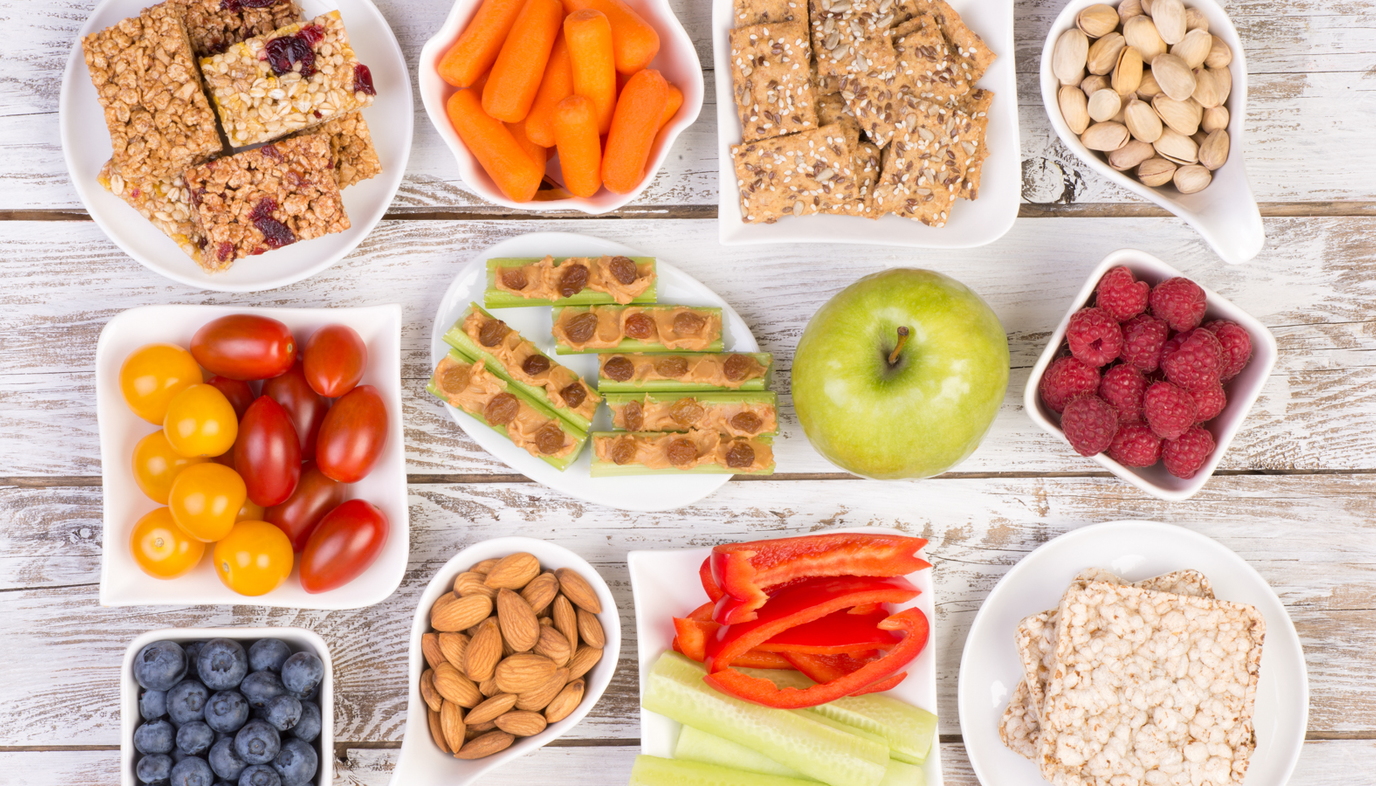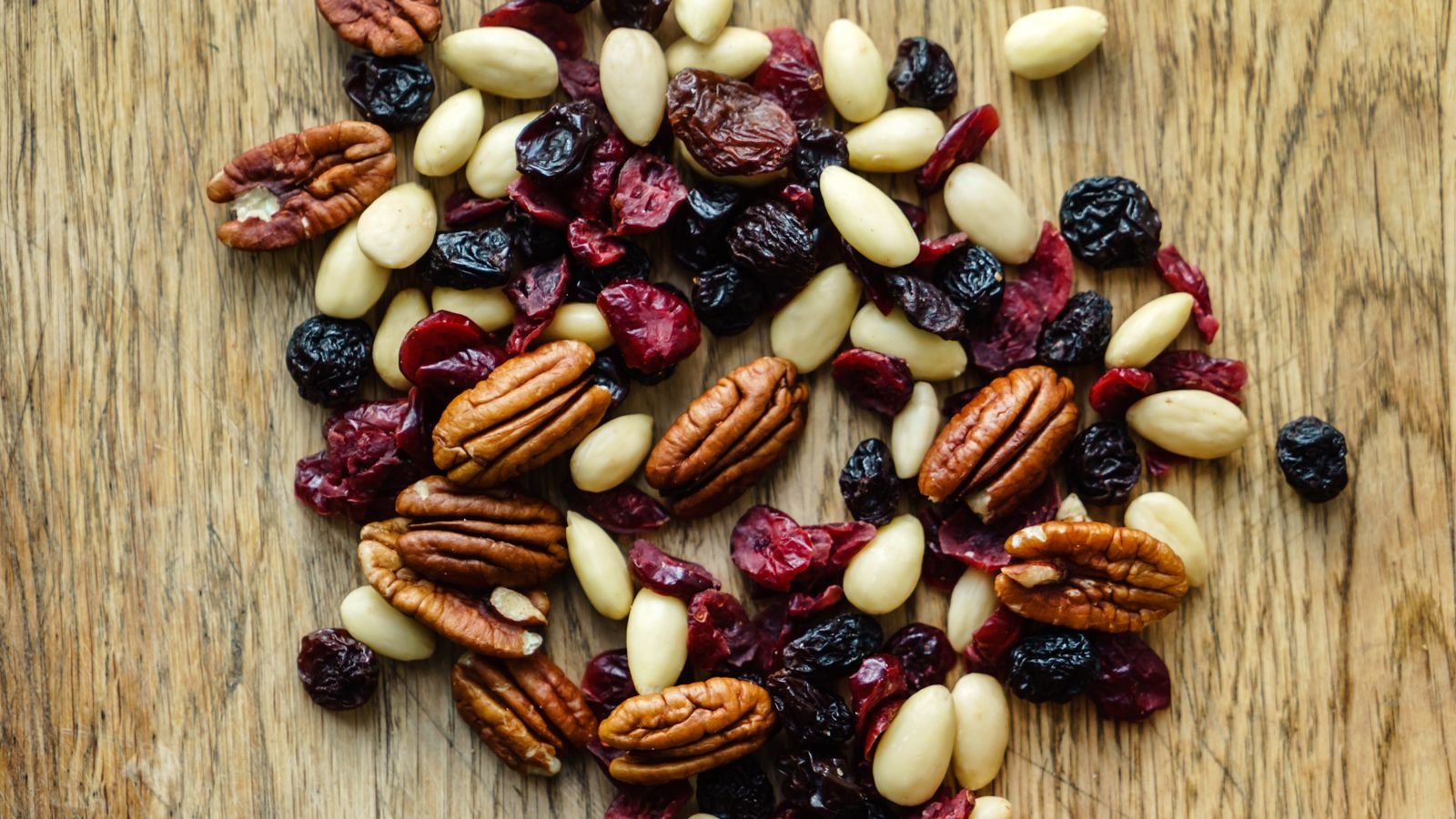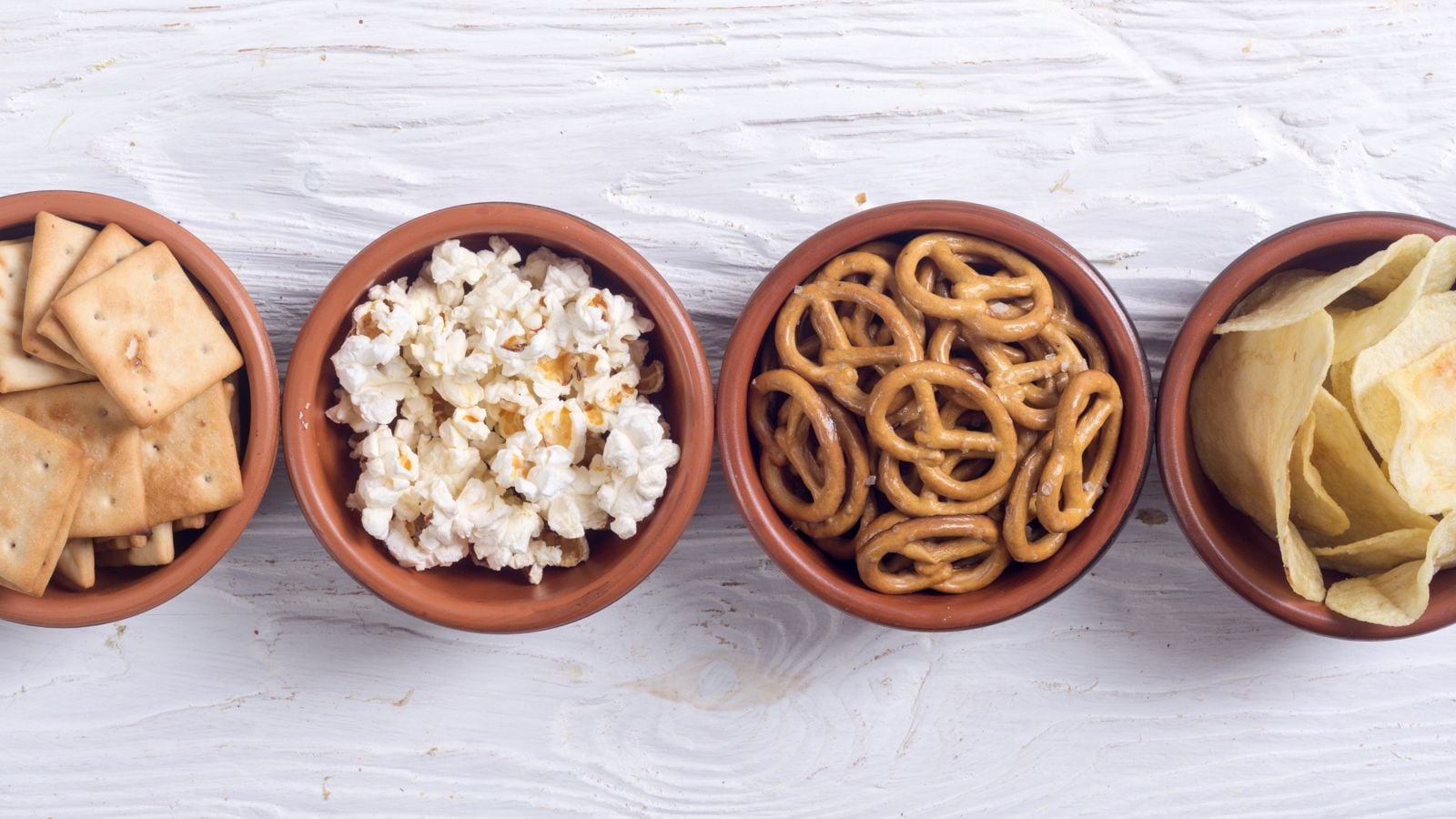Snacks and treats don’t have to be unhealthy to be tempting and delicious, and with the right ingredients, they can form a nutritious and integral part of your child’s well-balanced diet. Used judiciously, too, they add important variety to your child’s diet and encourage little ones to experiment with a wider range of flavors.
Preparing for the Snacks You Need
Snacks can be very important for some toddlers who will struggle to make it between main meals without something to eat. The reason is that their tummies are small, and they can’t get adequate calories in one sitting to see them through long periods without something to eat. They all need some refueling, and it is healthy to encourage them to eat when they are hungry so that they learn to understand and respond to “hunger cues.”
Many children with weight problems never experience the feeling of being hungry and are encouraged to eat constantly and to clean their plates. You’ll be doing your toddler a favor by allowing her to pick and choose from a snack plate, and to eat according to her own needs.
The secret is to schedule snacks so they don’t run too close to mealtimes (which can be counterproductive, as your toddler won't be hungry enough to eat properly, and will demand more snacks afterward), to offer healthy food that doesn’t distract from the nutritional value of her overall diet, and to avoid “grazing” (a constant succession of snacks between meals).
With the question of snacks, comes the question of sweets, and when (or if) one should introduce them. In short, the longer you delay introducing sweets, the better, as you will put off the inevitable demands that occur from the minute your toddler has her first taste!
It’s important to remember that toddlers have small tummies, and even a tiny packet of sweets can fill them up with empty calories, and prevent them from eating a healthy meal or snack. Sweets also cause tooth decay, which can affect even milk teeth.
There is no real reason why sweets of any nature need to be introduced before the age of two. However, once your child starts nursery school or playgroup, or spends time with other children on play dates or in daycare, he may not agree! Peer pressure occurs in even the tiniest of tots, and most kids will want to eat what their friends are eating.
There is no reason why you have to give in, and you can most certainly explain why you don’t want your toddler to eat certain foods, but the day of reckoning is on the horizon and he'll undoubtedly have his first tastes soon. For this reason, it’s a good idea to introduce them yourself, first, and to establish your family views on sweets.
Some families have a “sweet” jar, and allow one after dinner on the weekend, perhaps, which gives a little one something to look forward to and also makes it clear that they aren’t “everyday” foods.
Similarly, bake a treat together and impress the idea that this is a special treat. You can also offer some healthier alternatives to sweets, such as yogurt-covered raisins or dried fruit pieces in child-friendly packets.
Make treats occasional. Diets high in sugar are often high in fat and low in fiber. If your child fills up on sugary and fatty foods, he is likely to be at risk of vitamin and mineral deficiencies and at risk of obesity, heart disease, and diabetes in later life.
Easy and Healthy Snack Ideas
- Breadsticks with cream cheese
- Rice cakes or a little dried cereal
- Chunks of cheese
- Dried fruit
- Toasted pita bread with hummus
- Smoothies
- Fresh fruits and vegetables
- Fruit popsicles
- Fresh muffins
- Mini-sandwiches
- Bread with a little butter
 Annabel Karmel is a leading children’s author who has written 17 bestselling books. She has frequently appeared on Regis and Kelly, The View, The Today Show, and The Early Show. First Meals and More: Your Questions Answered is available now in bookstores. Reprinted by arrangement with DK Publishing from First Meals & More: Your Questions Answered. Copyright © 2009 by DK Publishing. Text © 2009 by Annabel Karmel. All rights reserved
Annabel Karmel is a leading children’s author who has written 17 bestselling books. She has frequently appeared on Regis and Kelly, The View, The Today Show, and The Early Show. First Meals and More: Your Questions Answered is available now in bookstores. Reprinted by arrangement with DK Publishing from First Meals & More: Your Questions Answered. Copyright © 2009 by DK Publishing. Text © 2009 by Annabel Karmel. All rights reserved



 Annabel Karmel is a leading children’s author who has written 17 bestselling books. She has frequently appeared on Regis and Kelly, The View, The Today Show, and The Early Show. First Meals and More: Your Questions Answered is available now in bookstores. Reprinted by arrangement with DK Publishing from First Meals & More: Your Questions Answered. Copyright © 2009 by DK Publishing. Text © 2009 by Annabel Karmel. All rights reserved
Annabel Karmel is a leading children’s author who has written 17 bestselling books. She has frequently appeared on Regis and Kelly, The View, The Today Show, and The Early Show. First Meals and More: Your Questions Answered is available now in bookstores. Reprinted by arrangement with DK Publishing from First Meals & More: Your Questions Answered. Copyright © 2009 by DK Publishing. Text © 2009 by Annabel Karmel. All rights reserved